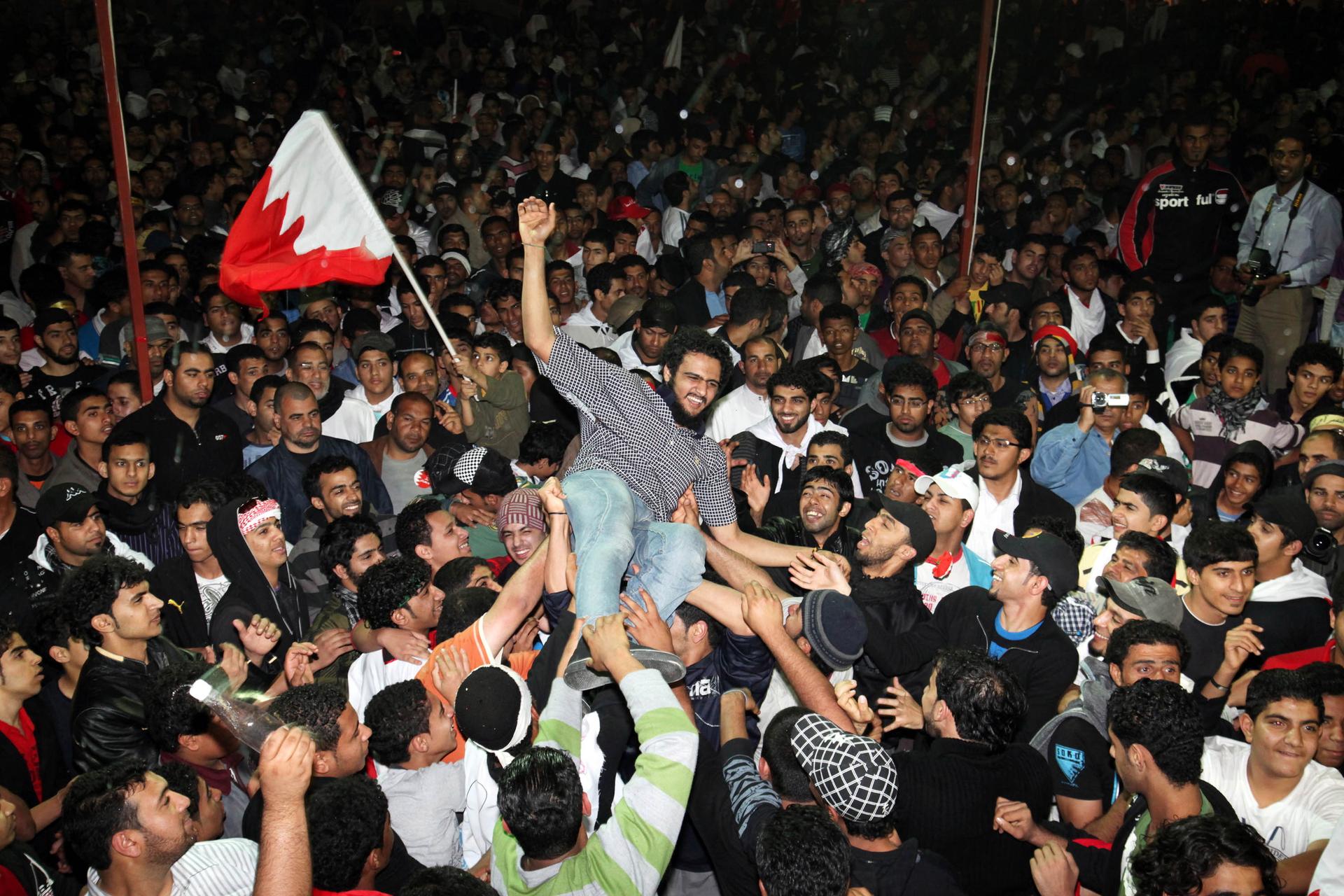Is your country an enemy of the internet?
A Bahraini freed prisoner is carried by opposition supporters following the release on February 23, 2011 by Bahraini authorities of 23 Shiite Muslim activists held on terrorism counts and pardoned two others abroad including opposition leader Hassan Mashaima, according to an MP.
Reporters Without Borders has released a comprehensive list of the “enemies of the internet” — countries that have taken steps to stifle web freedom around the world. The list also includes countries that have been declared “under surveillance,” meaning that they are at risk of becoming full-fledged enemies of the internet if their censorship activities do not cease.
The report focuses on the Arab Spring and how social media can be used as a tool for liberation and revolution, not to just chat with friends and share pictures.
“Online social networks complicate matters for authoritarian regimes that are trying to suppress unwanted news and information,” says the report.
“It was thanks to netizens that Tunisians learned about the street vendor who set himself on fire in Sidi Bouzid and Egyptians learned about Khaled Said, the young netizen who was beaten to death by police outside an Alexandria Internet café. It was thanks to social networks that Sidi Bouzid and Khaled Said became news stories and went on to become cornerstones of the Arab Spring.”
The list of enemies include North Korea and China, famous for its “Great Firewall,” used to keep Chinese internet users from visiting sites like Facebook, YouTube, Twitter and Tumblr. Countries added to the “under surveillance” list include Egypt, Australia and France.
Bahrain was also upgraded from “under surveillance” to enemy status in the report, citing violent crackdowns on bloggers as well as the death of Zakariya Rashid Hassan, who died in custody in Bahrain a week after he was arrested on charges of inciting hatred, disseminating false news and calling for the overthrow of the government in online forums.
The report says that Bahrain has succeeded in creating a news blackout thanks to a combination of technical, judicial and physical censorship methods.
Reporters Without Borders says that the Arab Spring has highlighted the importance and need for worldwide internet freedom as it provides people with a means to free themselves from oppressive regimes or pressure governments into protecting the rights of their people.
"The Internet and social networks have been conclusively established as tools for protest, campaigning and circulating information, and as vehicles for freedom. More than ever before, online freedom of expression is now a major foreign and domestic policy issue," read the report.
Every day, reporters and producers at The World are hard at work bringing you human-centered news from across the globe. But we can’t do it without you. We need your support to ensure we can continue this work for another year.
Make a gift today, and you’ll help us unlock a matching gift of $67,000!
